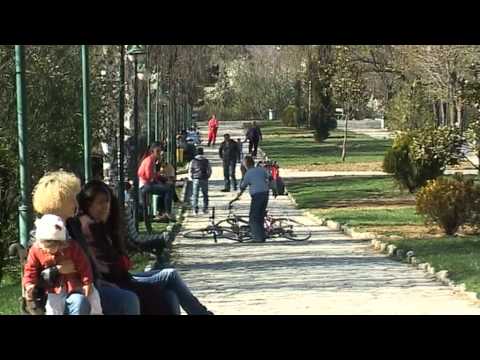
Kosovo, Europe’s youngest country, declared independence from Serbia in 2008. Despite its turbulent history, Kosovo is a charming destination with a rich tapestry of culture, history, and natural beauty waiting to be explored. Located in the heart of the Balkans, Kosovo offers an authentic experience to travelers looking for something new and off the beaten path. This travel guide will help you discover the best of what Kosovo has to offer.
### Historical Context
Kosovo has been at the crossroads of Eastern and Western civilizations for centuries, which is evident in its diverse cultural heritage. The region has been inhabited since the Neolithic era and has come under Roman, Byzantine, Ottoman, and Yugoslav influence over the millennia.
### Top Places to Visit
#### Pristina
The capital city is vibrant and full of life. Notable attractions include the Newborn Monument, which symbolizes Kosovo’s independence and is repainted every year with different themes. The Ethnological Museum (housed in an old Ottoman building) provides insightful perspectives into Kosovar culture and history.
#### Prizren
Often considered Kosovo’s cultural capital, Prizren is a picturesque town with beautifully preserved Ottoman architecture. The city comes alive during Dokufest, an annual international documentary and short film festival that attracts artists from around the world.
#### Peja
Located near the Rugova Gorge and Accursed Mountains, Peja offers stunning natural landscapes alongside important religious sites like the Patriarchate of Peć monastery. It’s an excellent base for hiking, skiing or just enjoying nature.
#### Gjakova
This city is known for its old bazaar – one of the oldest in Kosovo – filled with artisan workshops and quaint cafes. Gjakova also hosts a vibrant night scene thanks to its young population.
### Natural Attractions
#### Rugova Mountains
Perfect for outdoor enthusiasts; offering hiking trails that provide spectacular views over rugged terrain. During winter months, skiing becomes a popular pursuit.
#### Mirusha Waterfalls
This series of waterfalls and pools in western Kosovo offers a refreshing escape during warmer months where visitors can swim or picnic beside tranquil waters surrounded by dramatic cliffs.
### Cultural Experiences
Kosovo may be small but it’s culturally rich. Traditional music often accompanies celebrations; these are great opportunities to witness Kosovar hospitality firsthand:
– **Dukagjini Balkan Brass Festival**: Celebrates Balkan music culture.
– **Gračanica Monastery**: Some 10 kilometers from Pristina lies one of the finest examples of Serbian Orthodox church architecture.
### Culinary Delights
Kosovar cuisine reflects its history as a crossroads between East and West with influences from Turkish, Albanian, Serbian cuisines:
– **Flija**: Layers upon layers of crepe-like batter interspersed with cream.
– **Burek**: A savory pie filled usually with meat or cheese.
– Savor these along with locally produced wines or peja beer.
### Travel Tips
– **Language**: Albanian is predominantly spoken but Serbian is also an official language in some regions. English is increasingly understood especially among younger people.
– **Currency**: Euro (€) despite not being part of EU.
– **Transportation**: Public transport exists but renting a car might provide more flexibility for exploring remote areas.
### Safety
Kosovo enjoys relative safety compared to other regions globally; however usual precautions about belongings should suffice.
Whether you’re drawn by its ancient monasteries perched in idyllic settings, vibrant festivals that showcase emerging cultural trends or simply by the promise of undiscovered landscapes — traveling through Kosovo can be both enlightening and rewarding venture into Europe’s less trodden paths.
